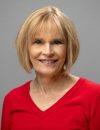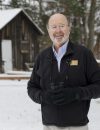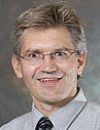Broadway star André De Shields and psychologist John Gottman will address graduates of their alma mater at ceremonies at Camp Randall on May 8, the university said. De Shields will speak to undergraduates, and Gottman will address those getting their graduate degrees.
UW In The News
-
More COVID state shutdowns unlikely, despite CDC suggestion
“From a social science perspective, the decision from the governor to not go towards a lockdown I think is a sensible one,” said Dominique Brossard, chair of the Department of Life Sciences Communication at the University of Wisconsin. “You need to work with what you have as far as people’s psychological state.”
-
The Vaccinated Parent’s Guide to Life With Unvaccinated Kids
If this new and perplexing reality has added to your stress, you’re not alone. “It has really produced a ton of new anxiety, this process of reopening, re-engaging with social interactions after a year trying to avoid them,” said Malia Jones, a community health scientist at the University of Wisconsin-Madison. The vaccines seem to have provided a promising path out of the pandemic, she said, “but also, oh my God, we have to renegotiate every single one of these situations.”
It’s tricky to predict how long the rest of the clinical trials and approval processes will take, but Dr. James Conway, a pediatric infectious disease specialist at the University of Wisconsin School of Medicine and Public Health who oversees vaccination programs there, said that it’s likely that vaccines will be available for 12- to 15-year-olds this summer, for 5- to 11-year-olds in late 2021, and for babies over 6 months old, toddlers and preschoolers in early 2022.
-
Butterflies provide ‘extraordinary’ help pollinating cotton fields
“This paper will drive people to look at the importance of butterflies as pollinators,” says Karen Oberhauser, a butterfly biologist at the University of Wisconsin, Madison, who was not involved in the research. If the results hold up in other crops, butterflies might be added to a short list of commercially important pollinators including honey bees, bumble bees, hoverflies, and beetles.
-
The genetic mistakes that could shape our species
“In the whole global accounting of Crispr [gene editing] therapies, somatic cell genome editing is going to be a large fraction of that,” says Krishanu Saha, a bioengineer at University of Wisconsin-Madison who is currently part of a consortium investigating the technique’s safety. “I mean, that’s certainly the case now, if you look at where trials are, where investment is.”
-
Students Who Gesture during Learning ‘Grasp’ Concepts Better
“It’s a nice, clean demonstration” of movement’s benefits, says Martha Alibali, a psychologist at the University of Wisconsin–Madison, who studies gesture in education and was not involved in the study. A model, she says, is “a super important concept, a really foundational statistical concept.”
-
Why covid arm and other post-vaccine rashes might actually be a ‘good thing’
“It doesn’t happen in the summer,” says Beth Drolet, professor and chair of dermatology at the University of Wisconsin School of Medicine and Public Health, who is studying the covid toe phenomenon. “The toes can stay blue for weeks, but eventually go back to normal.”
As the vaccine rollout accelerates this spring and summer, “we would expect to see a decrease in post vaccination covid toes,” says Lisa Arkin, director of pediatric dermatology at Wisconsin. “Covid toes are easily treatable with rewarming. They resolve spontaneously. Sometimes, we use topical medicines to treat inflammation in the skin. Most patients experience mild swelling and itch, which resolves within days to weeks.”
-
Meghan Markle won’t travel to Prince Philip’s funeral. Experts say flying while pregnant during the pandemic can be risky.
Dr. Makeba Williams, an OB-GYN at the University of Wisconsin School of Medicine and Public Health, told Insider flying during pregnancy is generally safe before 36 weeks, though more precautions are needed during the pandemic, especially if you’re not vaccinated.
“It’s unfortunate we have to talk about [flying while pregnant] in the context of a death,” she said, “but it’s relevant to a lot of people.”
-
Key ingredient in coronavirus tests comes from Yellowstone’s lakes
When Brock went to Yellowstone to study hot springs, he never imagined his work would revolutionize the study of DNA. “I was free to do what is called basic research … Some people called it useless because it was not focused on practical ends,” Brock said in an acceptance speech for an honorary degree from the University of Wisconsin-Madison. “What use could there be in looking for living bacteria in hot springs and boiling pools at Yellowstone National Park?”
-
Proctoring Tool Failed to Recognize Dark Skin, Students Say
The University of Wisconsin at Madison has changed how it uses exam proctoring software Honorlock in response to complaints that the software failed to recognize the faces of students with darker skin tones, the Wisconsin State Journal reported.
-
Pandemic food benefit expands for qualifying children
“Even in the communities that do the best job of this, those summer meals are only reaching a fraction of the kids who normally get fed during the school year,” said Judi Bartfeld, a food security research and policy specialist at the University of Wisconsin-Madison.
-
How Wisconsin turned around its lagging vaccination program — and buoyed a Biden health pick
These factors make Wisconsin well-prepared for the next phase of its immunization campaign, as the challenge of insufficient supply gives way to issues of access and vaccine hesitancy, said Jonathan Temte, associate dean for public health and community engagement at the University of Wisconsin School of Medicine and Public Health. That’s because a robust network of small and midsized providers allows tailored outreach to vulnerable or resistant groups.
-
Pandemic Helps Stir Interest in Teaching Financial Literacy
A study released in March by researchers at the University of Wisconsin and Montana State University found significant increases in teacher participation in professional development.
-
Vapor condenser copies beetle trick to harvest water
“Water sustainability is a global issue,” says Zongfu Yu, associate professor of electrical and computer engineering at the University of Wisconsin-Madison, another leading corresponding author. “You can’t set out to solve the water problem without addressing energy.”
-
Why Being ‘Anti-Media’ Is Now Part Of The GOP Identity
Take, for instance, a recent study of tweets mentioning “fake news.” Over the course of 15 months, study authors Jianing Li and Min-Hsin Su of the University of Wisconsin-Madison found an uptick in the number of tweets that used the words “we” or “our” and “they” or “their” in conjunction with the phrase “fake news.” Essentially, the researchers concluded that online discussions about “fake news” were a way for conservatives to create a sense of group belonging (“This is the worst kind of fake news possible.
-
States requiring personal finance classes need to train teachers too
Research out of the University of Wisconsin-Madison suggests that training educators helps improve whether they feel well-qualified to teach personal finance. Among a 2020 survey of teachers — mostly instructors likely to teach such a course — those who said they would feel very confident teaching it reached 70%, up from 9% in 2009.
-
A Biblical Mystery and Reporting Odyssey: 1883 Fragments
But then, in 1956, Shapira popped up again — on the front page, no less — when The Times reported that Menahem Mansoor, a respected scholar at the University of Wisconsin, was reopening the case.
-
The Way Bosses Conduct And Communicate Layoffs Is Inhumane. There’s Another Way.
After layoffs, morale tanks and turnover increases. As Charlie Trevor, a professor of management and human resources at the University of Wisconsin–Madison, previously told HuffPost, how layoffs are handled can tell “a survivor a great deal about the company’s priorities and about the type of treatment one might expect moving forward.”
-
Super-cold thunderstorm sets temperature record
Dr Proud and Scott Bachmeier, a research meteorologist at the University of Wisconsin-Madison, US, report the event in a paper in the journal Geophysical Research Letters.
-
To keep the virus off a campus, test beyond its borders, a new study suggests.
The study has “really profound implications, especially if others can replicate it,” said David O’Connor, a virologist at the University of Wisconsin, Madison, who was not involved in the analysis but reviewed a draft of the paper.
-
Naming The Gunman Glorifies His Crimes, Not Naming Him Could Undermine The Truth : NPR Public Editor
The language that develops in the immediate aftermath of a shooting becomes the predominant narrative among citizens, said LiLi Johnson, an assistant professor of gender & women’s studies and Asian American studies at the University of Wisconsin-Madison. “Even dictionary definitions of the term [massage parlor] associate it with sex work,” she said in an email. “Given the fact that Asian and Asian American women are already sexualized in United States culture, uncritical use of the term ’massage parlor’ can reinforce those associations.”
-
Genome Sequencing and Covid-19: How Scientists Are Tracking the Virus
As machines improved, the impact was felt mainly in university labs, which had relied on a process called Sanger sequencing, developed in the mid-1970s by the Nobel laureate Frederick Sanger. This laborious technique, which involved running DNA samples through baths of electrically charged gels, was what the scientists at Oxford had depended upon in the mid-1990s; it was also what Dave O’Connor, a virologist at the University of Wisconsin, Madison, was using in the early 2000s, as he and his lab partner, Tom Friedrich, tracked virus mutations. “The H.I.V. genome has about 10,000 letters,” O’Connor told me, which makes it simpler than the human genome (at three billion letters) or the SARS-CoV-2 genome (at about 30,000). “In an H.I.V. genome, when we first started doing it, we would be able to look at a couple hundred letters at a time.” But O’Connor says his work changed with the advent of new sequencing machines. By around 2010, he and Friedrich could decode 500,000 letters in a day. A few years later, it was five million.
-
Businesses May Benefit From Sharing Covid Testing Resources, Study Suggests
The study has “really profound implications, especially if others can replicate it,” said David O’Connor, a virologist at the University of Wisconsin, Madison, who was not involved in the analysis but reviewed a draft of the paper. As the pandemic enters its second year, he said, “We want to start using more sophisticated modeling and probably economic theory to inform what an optimal testing program would look like.”
-
Byhalia pipeline: Black families square off with Big Oil
Corbett Grainger, a University of Wisconsin-Madison professor of environmental economics, said he wasn’t surprised to see a hole in the monitoring network in Memphi
-
Broadway star, prominent psychologist to address UW-Madison graduates
-
UW Varsity Band members return for first large practice in more than a year
There’s no spring concert on this year’s calendar, and practice maybe looked a little funny, with students wearing slitted masks and bell covers slipped over instruments to prevent the spread of COVID-19, but UW-Madison’s beloved band is back.
-
AstraZeneca used ‘outdated and potentially misleading data’ that overstated the effectiveness of its vaccine, independent panel says
David L. DeMets, a University of Wisconsin at Madison biostatistics expert, said that while he has no specific information on what occurred in this case, his experience serving on data safety and monitoring committees for nearly half a century was that it would be “very uncommon” for those experts to challenge a company or scientists on the content of a news release.
-
House bill does little to protect our local elections
The bill makes huge strides for American democracy. No one should claim that dark money and large-scale statewide voting barriers aren’t noxious. Indeed, experts estimate that voter identification requirements may disenfranchise millions of Americans, and such laws disproportionately harm poor voters and voters of color. But no one, except the federal government, has the capacity to ensure fair federal elections at the local level. And sadly, For the People Act fails to do so.
Steven Wright served in the Voting Rights Section of the U.S. Department of Justice for five years. He currently teaches Law and English at the University of Wisconsin-Madison.
-
These Moms Work as Doctors and Scientists. But They’ve Also Taken On Another Job: Fighting COVID-19 Misinformation Online
One common myth claims that COVID-19 mRNA vaccines, like the ones from Pfizer-BioNTech and Moderna, may cause infertility. The Dear Pandemic group received so many queries on this topic that its co-founder Malia Jones, an associate scientist in health geography at the University of Wisconsin–Madison Applied Population Laboratory, posted a video explicitly calling out the theory as a “scare tactic”: “I just want to call it what it is: it’s a fabrication meant to play on our emotions,” she said.
-
Amazing Video Shows Northern Lights Dancing in Sky Above Wisconsin Lake
As such, the northern lights can be spotted in northern U.S. states such as Wisconsin and Alaska, but also Pennsylvania. They have also been known to appear in states including Illinois, Oregon, Maine, Washington and Montana. According to a blog post by professor Jerry Zhu of the University of Wisconsin-Madison, some northern states can see a few shows of aurora borealis each year.
-
Daryl Watts’ overtime goal gives Badgers their sixth NCAA women’s hockey championship
Make room for a sixth NCAA championship banner in LaBahn Arena. Watts scored a stunner from behind the net in overtime Saturday, and the Badgers had another title to celebrate.
- Newer stories
- Page 44 of 140
- Older stories
Featured Experts
Kathleen Glass: Food safety
Food is an integral part of Thanksgiving. And who doesn't love leftovers? But after how long should you leave those… More
Cecelia Klingele: Body-worn cameras by police
Madison Police Chief Shon Barnes is requesting that the city fund widespread use of body cameras for officers in the… More
Stanley Temple: Fall phenology
The days have finally started getting cooler and we all know winter awaits. Stanley Temple, an expert on birds, wildlife, endangered… More
Jonathan Temte: The seasonal flu shot
Family medicine professor Jonathan Temte is available to discuss this year's updated seasonal flu shot and flu prevention and control. More
Noelle LoConte: Pancreatic Cancer Awareness Month
Pancreatic cancer is one of the most difficult cancers to prevent, diagnose or treat. Earlier this month, music legend Quincy… More
Alvin Thomas: Movember and Men's Health Month
You might see more facial hair this month as Movember goes into full effect, drawing awareness toward men's health. Alvin… More
Dominique Brossard: Vaccine hesitancy
With a new administration poised to take power in January, a change in policy regarding vaccines may also be on the way.… More







